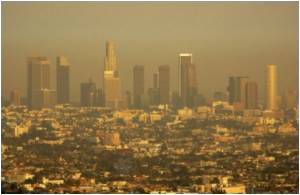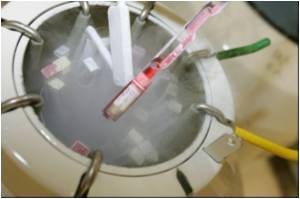
The body's ability to properly regulate heartbeat so the heart can pump the appropriate amounts of blood into the circulation system relies on the stability of the heart's electrical activity, called electrophysiology.
"Air pollution is associated with cardiopulmonary mortality and morbidity, and it is generally accepted that impaired heart electrophysiology is one of the underlying mechanisms," said Fan He, master's program graduate, Department of Public Health Sciences, Penn State College of Medicine. "This impairment is exhibited through fluctuations in the heart rate from beat to beat over an established period of time, known as heart rate variability. It is also exhibited through a longer period for the electric activity to return to the baseline, known as ventricular repolarization.
"The time course, how long it would take from exposure to cardiac response, has not been systematically investigated," said He. "We conducted this study to investigate the relationship between particle matter and heart electrophysiology impairment, especially the time course."
The researchers published their results in recent issues of the Journal of Exposure Science and Environmental Epidemiology and in Environmental Health Prospective.
Liao's team of researchers studied 106 people from central Pennsylvania, mostly in the Harrisburg metropolitan area. Nonsmokers over the age of 45 without severe cardiac problems wore air-quality and heart-rate monitors for 24 hours. The devices recorded data in one-minute intervals.
Advertisement
PM2.5 refers to particles up to 2.5 micrometers in size. Their primary sources are diesel engine and coal combustion outdoors; and oil, gas or wood combustion for cooking and heating indoors. PM2.5 levels are regulated by the U.S. Environmental Protection Agency.
Advertisement
Source-Eurekalert
TAN















